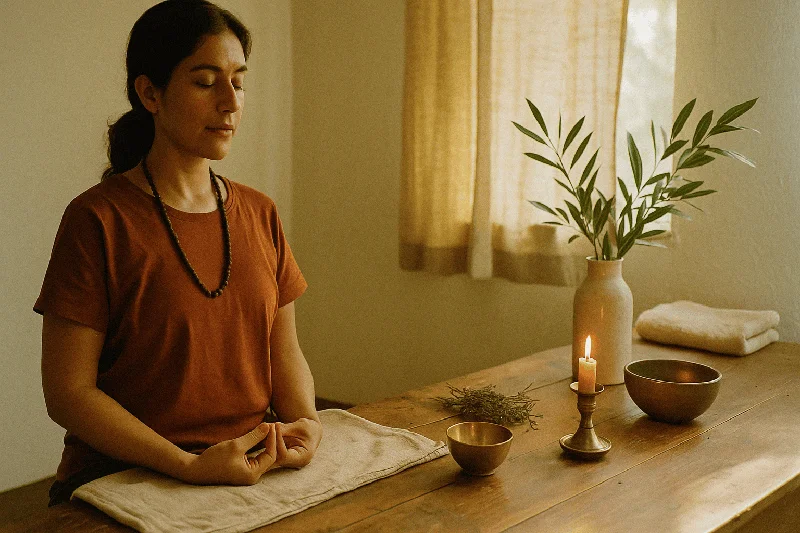Ask Ayurvedic doctor a question and get a consultation online on the problem of your concern in a free or paid mode. More than 2,000 experienced doctors work and wait for your questions on our site and help users to solve their health problems every day.
Ayurvedic Lifestyle: Creating Balance and Harmony

In today’s fast-paced world, finding balance and harmony seems like an elusive dream. However, ancient wisdom often holds the keys to a more balanced and harmonious life. Enter Ayurveda, a holistic system of medicine that has been practiced for thousands of years in India. Ayurveda, which translates to “the science of life,” offers profound insights and practices to help us achieve balance in mind, body, and spirit.
Understanding Ayurveda: The Science of Life
At the heart of Ayurveda lies the concept of achieving balance among the three doshas: Vata, Pitta, and Kapha. These doshas represent different combinations of the five elements – ether, air, fire, water, and earth – and govern various physiological and psychological functions in the body.
–Vata: Associated with the elements of ether and air, Vata governs movement and communication.
– Pitta: Linked to fire and water, Pitta regulates digestion, metabolism, and transformation.
– Kapha: Comprising earth and water, Kapha governs structure, stability, and lubrication.
According to Ayurveda, when these doshas are in balance, we experience optimal health, vitality, and well-being. However, imbalances can lead to discomfort, illness, and disease.
The Ayurvedic Lifestyle: Key Principles
- Mindful Eating:
Ayurveda emphasizes the importance of eating in a calm, peaceful environment and choosing foods that align with your dosha constitution. Each dosha benefits from specific tastes and textures, and incorporating a variety of fresh, seasonal foods can help maintain balance.
- Daily Routine (Dinacharya):
Establishing a daily routine that aligns with the natural rhythms of the day is essential in Ayurveda. From waking up early to practicing self-care rituals like oil massage (abhyanga) and tongue scraping, dinacharya sets the tone for a balanced day.
- Yoga and Meditation:
Both yoga and meditation are integral components of the Ayurvedic lifestyle. Yoga postures (asanas) help balance the doshas, while meditation calms the mind and promotes inner harmony.
- Herbal Remedies:
Ayurveda harnesses the healing power of herbs to address imbalances and promote overall well-being. From ashwagandha for stress relief to turmeric for inflammation, the herbal pharmacopoeia of Ayurveda offers a natural approach to health.
Ask Ayurveda: Your Gateway to Ayurvedic Wellness
In today’s digital age, accessing Ayurvedic wisdom has never been easier, thanks to platforms like Alveda. As the best online treatment platform for Ayurveda, Ask-Ayurveda brings together ancient wisdom and modern technology to offer personalized wellness solutions.
What sets Alveda apart?
– Expert Guidance: Ask-Ayurveda connects you with experienced Ayurvedic practitioners who provide personalized consultations and treatment plans tailored to your unique constitution and health goals.
– Convenient Access: Say goodbye to long waits and commutes. With Alveda, you can access Ayurvedic consultations and remedies from the comfort of your own home, anytime, anywhere.
– Holistic Approach: Ask-Ayurveda takes a holistic approach to wellness, addressing not only physical ailments but also emotional and spiritual imbalances. Through a combination of diet, lifestyle recommendations, herbal remedies, and mindfulness practices, Ask-Ayurveda helps you achieve holistic well-being.
Embrace the Ayurvedic Lifestyle
In a world filled with stress and uncertainty, Ayurveda offers a beacon of hope and healing. By incorporating Ayurvedic principles into your daily life and seeking guidance from platforms like Alveda, you can embark on a journey towards greater balance, harmony, and vitality. Remember, the key to a fulfilling life lies in finding harmony within yourself and the world around you.

